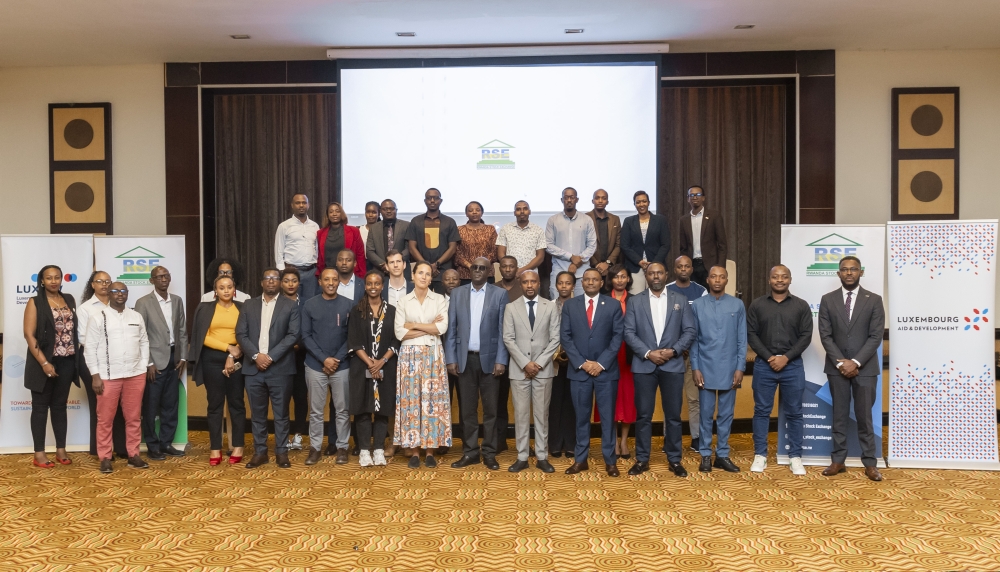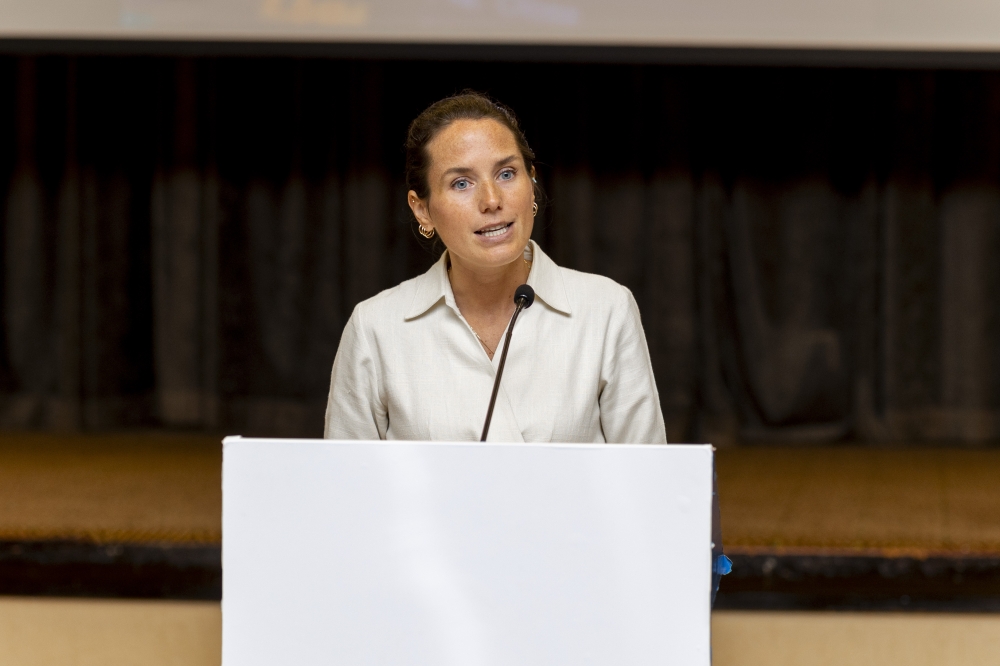

Rwanda’s companies, especially small and medium-sized enterprises (SMEs), have shown strong potential for growth and play a crucial role in job creation and innovation.
However, strategic access to the capital market is essential for them to scale further, attract effective partners, skilled personnel, and build efficient systems, according to Charlotte Helminger, Chargée d'Affaires at the Embassy of Luxembourg.
This comes in recognition of the fact that many SMEs and startups struggle to access loans, a major factor that limits their growth and in some cases, leads to bankruptcy. Thus, tapping the capital market would be a sustainable financing alternative for their long-term goals.
Helminger noted that "Rwanda has shown strong leadership in this area”, and "Luxembourg proud to be part of its journey while giving out a strong support in advancing financial inclusion and sustainable development.”


"Our partnership with Rwanda is rooted in a shared vision, one where inclusive, transparent, and well-regulated capital markets are at the heart of sustainable economic development,” she said.
"We believe that by supporting market infrastructure, investor education, and access to finance, we can empower more local businesses to grow and attract long-term investment,” she added.
ALSO READ: How envisioned capital market academy will contribute to Rwanda’s long-term prosperity
The Rwanda Stock Exchange (RSE) supports access to the capital market and is targeting companies that may be interested in joining through its initiative, the "Capital Market Investment Clinic.” Theprogramme is specifically designed to help SMEs become investor-ready and successfully enter the capital market ecosystem.
The clinic focuses on identifying gaps in SMEs’ readiness to attract investment, providing solutions, and linking them with both technical support and capital market opportunities. It acts as a catalyst for private sector growth, particularly for SMEs.
Previous cohorts have shown promising results, with some participating businesses overcoming financial hurdles and thriving challenges that continue to hold many SMEs back today, according to Pierre-Celestin Rwabukumba, the CEO of RSE.
These among many were central to the April 25 "Listings Forum: Empowering Businesses Through Capital Markets,” an annual campaign aimed at bringing capital market awareness to companies across sectors.
The forum provided a platform to explore how businesses of all sizes can access funding, pursue listings, and contribute to Rwanda’s investment growth.
ALSO READ: Rwanda&039;s capital market joins global campaign promoting technology and sustainable finance
"To every Rwandan entrepreneur here today, I say this: The capital markets are not just for large corporations. They are for you. Your business can raise capital, attract investors, and expand across borders,” said Rwabukumba, while addressing this common misconception within the ecosystem.
"Therefore, I invite you to seize this opportunity not only to fund your businesses but to help build a stronger, more competitive, and self-reliant Rwanda,” he added.
The RSE boss acknowledged that "access to finance is a problem and that’s common because there’s either no finance or it’s expensive.”
According to RSE, two cohorts have completed through the Investment Clinic so far, with the first targeting 45 companies, and the second targeting 10. In total, at least five companies have been fully profiled.
"From the first cohort, three successfully raised funds, and in the second, two did. This shows that the project is indeed working, and we are now welcoming more companies on board,” Rwabukumbanoted.
ALSO READ: Rwanda CMA boss outlines plans to transform capital market
Jean Claude Uwizeyemungu, the Managing Director of Mahwi Grain Millers, one of the few SMEs that participated in the Investment Clinic, said that the collaboration not only provides access to capital for rapid business growth but also offers the right technical assistance and business advice.
"It’s been a valuable learning process. We’ve identified gaps within our business and worked on addressing them to become compliant,” he said. "Through this initiative, we managed to raise funds, and our business profile was presented to potential investors. The way people run their businesses must change. It’s a paradigm shift. We need to evolve and grow to the corporate level.”


